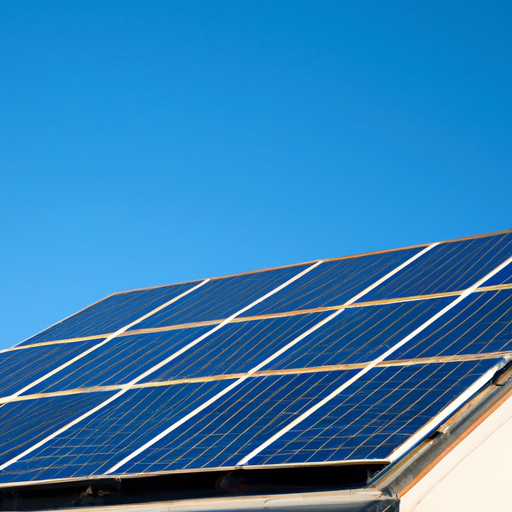Table of Contents
In a world accelerating towards sustainable living, solar panels have emerged as an incredibly shrewd investment. This article unpacks the compelling reasons why solar panels make economic and environmental sense.
Environmental Benefits
One of the most profound reasons to invest in solar panels is their significant positive impact on the environment. Traditional energy sources such as coal, oil, and natural gas contribute to air pollution and produce greenhouse gases that accelerate climate change.
Solar energy, on the other hand, is a clean, renewable energy source that generates electricity without emitting harmful pollutants or greenhouse gases. By installing solar panels, homeowners and businesses alike can reduce their carbon footprints and make a meaningful contribution to mitigating global warming.
Solar power also conserves water resources. Unlike fossil fuel-based power plants that consume vast amounts of water for cooling and processing, solar panels require no water to generate electricity. This is particularly valuable in regions where water scarcity is an issue. Furthermore, the life cycle of solar panels, from manufacture to disposal, has a substantially lower environmental impact compared to conventional energy sources. By opting for solar energy, you&8217;re helping to preserve ecosystems and protect biodiversity, making it an environmentally responsible choice.
Financial Savings
Arguably, the most compelling reason for installing solar panels is the substantial financial savings they offer. While the initial installation cost can be high, numerous financial incentives can offset these expenses. Federal and state governments often provide tax incentives, grants, and rebates to make solar energy more affordable. Additionally, net metering policies in many areas allow homeowners to sell excess electricity generated by their solar panels back to the grid, further reducing electricity bills.
Over the long term, solar panels typically pay for themselves through the considerable savings on monthly energy bills. As utility rates continue to rise year after year, those who invest in solar panels can lock in their energy costs and gain financial predictability. Moreover, homes equipped with solar panels have been shown to increase in property value, making it a prudent long-term investment. The average savings can be in the tens of thousands over the lifespan of the solar panels, making the shift to solar not just environmentally smart but financially savvy as well.
Energy Independence
The quest for energy independence is another strong reason to consider solar panels. Traditional energy sources are finite and subject to geopolitical tensions, price volatility, and supply disruptions. By installing solar panels, you essentially create your own micro-power station, reducing dependency on external energy suppliers. This is particularly advantageous for remote or rural locations where the electrical grid may be unreliable or nonexistent.
Energy independence also enhances energy security. In times of natural disasters or national emergencies, grid power can fail, leaving homes and businesses without electricity. Solar panels, especially when paired with a battery storage system, can provide a reliable backup source of power, ensuring that critical appliances and systems remain operational. This kind of energy resilience is becoming increasingly appealing as people seek ways to safeguard against unpredictability in energy supply. A move towards solar minimizes vulnerability and fosters self-sufficiency, allowing for greater peace of mind.
Technological Advances and Ease of Maintenance
Technology is rapidly advancing, making solar panels more efficient, affordable, and easier to maintain than ever before. Modern solar panels are designed to withstand harsh weather conditions and can last for 25-30 years with minimal maintenance. Innovations in solar technology have led to the development of high-efficiency panels that can generate more electricity from the same amount of sunlight, increasing overall energy yield.
Maintenance of solar panels is straightforward and infrequent, primarily involving routine cleaning to remove dirt or debris that might hinder performance. Many solar installers also offer maintenance packages that include regular check-ups and system monitoring, ensuring that your solar array is running optimally. In the rare event that a panel or component needs repair, warranties and insurance often cover the majority of costs, so you’re not left footing an unexpected bill. These technological advancements and easy maintenance protocols make the long-term operation of solar panels a hassle-free affair.
Contribution to a Sustainable Future
Embracing solar energy is not just a personal financial or practical decision; it’s a commitment to a sustainable future. As the detrimental impacts of climate change become more pronounced, the push towards renewable energy sources like solar is not just advisable, but imperative. Solar energy is infinite and sustainable, unlike fossil fuels which are depleting at an alarming rate. By investing in solar panels, you contribute to a larger societal shift towards renewable energy, setting an example for future generations.
Individuals and businesses who adopt solar energy also inspire their communities to consider green alternatives. This catalyzes a domino effect, fostering a culture of sustainability and innovation. Corporate social responsibility is increasingly prioritized, and companies that invest in solar energy gain a competitive edge, enhancing their brand image and appealing to eco-conscious consumers. The shift to solar power is more than just an investment in property; it’s an investment in the planet and a legacy that forwards a vision of a renewable, sustainable future.
In conclusion, the multitude of reasons for investing in solar panels — from financial savings and energy independence, to technological ease and environmental stewardship — underscores their status as a smart, forward-thinking choice. As we confront the dual challenges of energy security and climate change, solar panels stand out as a powerful and prudent solution.

